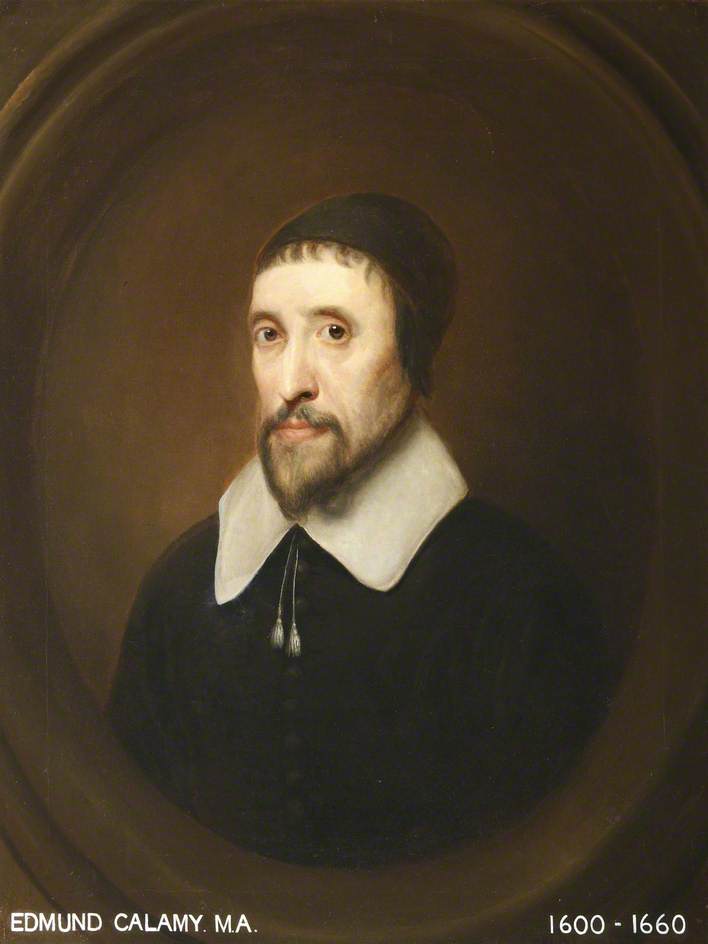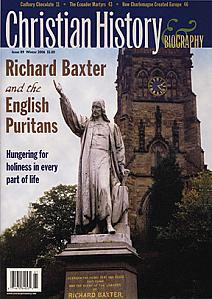FAITH MADE HUNDREDS OF PASTORS GIVE UP THEIR JOBS

[Above: Edmund Calamy by Gustavus Ellinthorpe Sintzenich—public domain, Wikimedia]
ON THIS DAY, 17 AUGUST 1662, occurred one of the most unusual events in the history of the church. About a thousand pastors in England preached farewell sermons to their congregations all on the same Sunday. The event is known as the Great Ejection.
Samuel Pepys wrote in his diary:
Sunday 17 August 1662 (Lord’s day). Up very early, this being the last Sunday that the Presbyterians are to preach, unless they read the new Common Prayer and renounce the Covenant, and so I had a mind to hear Dr. Bates’s farewell sermon, and walked thither...
Under Charles II, Parliament had passed “An Act for the Uniformity of Publique Prayers and Administracon of Sacraments & other Rites & Ceremonies and for establishing the Form of making ordaining and consecrating Bishops Preists and Deacons in the Church of England” [original spelling is retained]. The intent of the law was to standardize worship and the consecration of priests in England under the revised Book of Common Prayer. To keep their pulpits and incomes, priests, vicars, pastors, and ministers had to publicly assent to Church of England teachings by St. Bartholomew’s Day (24 August).
Many Anabaptist, Presbyterian, Independent, Congregationalist, and Puritan ministers (some overlap exists within these categories) disagreed with Church of England teachings and practices and could not in good conscience comply with the demanded readings. Issues that generated disagreement included bowing to altars, infant baptism, and wearing priestly robes. Quakers, who emerged on the scene about that time, also took issue with the law. Any Christian who rejected the ways of the established church became known as a nonconformist or dissenter.
As St. Bartholomew’s Day neared, the government placed troops on standby. However, the event passed peaceably. Over nine hundred pastors preached farewell sermons the Sunday before they would be expelled. Crowds of people filled the churches beyond capacity so that the overflow had to stand at windows or gather at doors. Many onlookers sobbed. Altogether, because of various laws from 1660 through 1665, about twenty percent of English ministers lost their positions. Some estimates put the number as high as two thousand in 1662 alone.
Some nonconformists continued to minister to their congregations, visiting homes secretly. For instance, John Flavel, hero of our April 27th story, preached in private homes and in the woods. Because close ties persisted between ministers and their former congregations, Parliament passed an act in 1664 forbidding meetings of more than five people (unless all of one family). Another act in 1665 prohibited ejected ministers from living within five miles of incorporated towns or of places where they had formerly served. Richard Baxter, famed Puritan author, was a moderate who got by for a while, but eventually he accepted imprisonment rather than violate his conscience. Edmund Calamy, himself expelled, collected lists of numerous pastors who fell afoul of the new laws.
One of those he profiled was Mr. Thomas Vincent. During the plague that ravaged England from 1664 into 1666, most establishment ministers fled from cities for safety, abandoning their charges. Several nonconformists, including Vincent, won honor by risking their lives to work among the sick. Even when plague deaths rose to six and seven thousand a week, they stayed on, showing that a spirit of true servanthood animated them.
Between two and three hundred nonconformist ministers later assented to Church of England forms, but the vast majority stayed true to their convictions despite the hardships this entailed. In 1689, under William and Mary, Parliament eased restrictions on nonconformists. A “settlement” in 1701 improved their position even more, although the Five Mile Act remained on the books until 1812. Meanwhile, Roman Catholics remained under severe limitations from various laws until 1829, but that is another story.
—Dan Graves
----- ----- -----
Richard Baxter was one of those who gave up his pulpit. The story of those times is told in Christian History #89, Richard Baxter & the English Puritans






